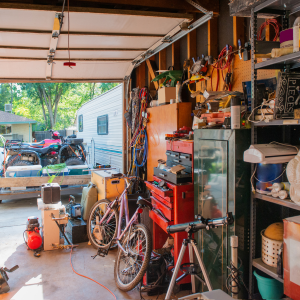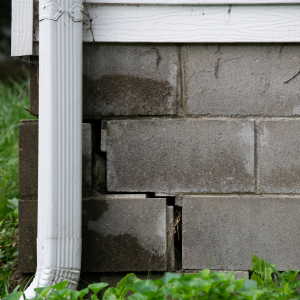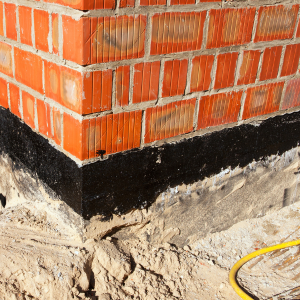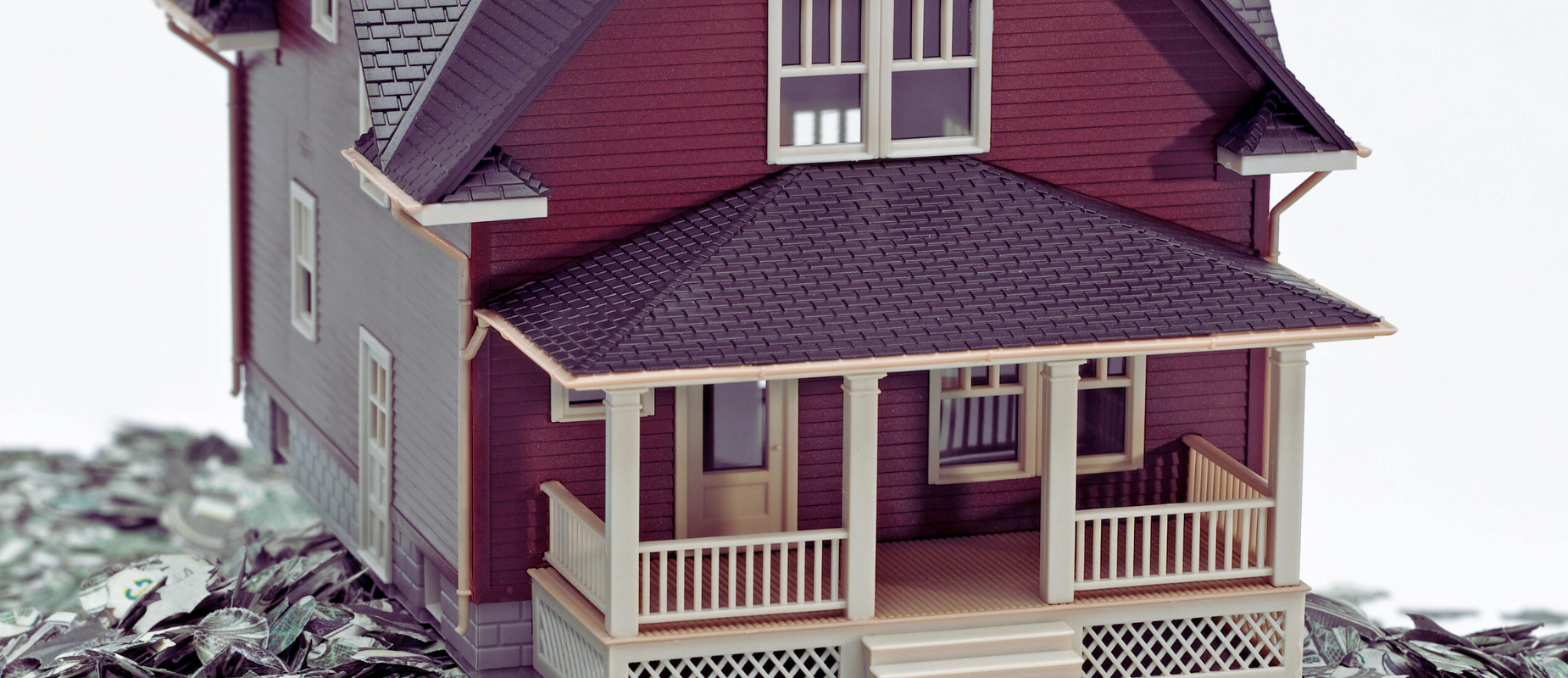
Navigating The Complex World Of Home Appraisals In The Lone Star State
Navigating the intricate world of house evaluations in the Lone Star State can be difficult, especially when circumstances can negatively affect the appraisal. As a homeowner in Texas, you must recognize these potential hurdles and how to avoid them.
Factors such as outdated or inadequate house upgrades, erroneous property information, low market prices, bad property conditions, and lack of similar properties can reduce appraisal value. To avoid these negative consequences, homeowners should keep their home renovations up to date and well-maintained, offer correct information about their property, investigate recent similar sales in their region, and make any necessary repairs before the appraisal process.
Homeowners in Texas can improve their chances of receiving a fair assessment by taking proactive steps and being educated.
Understanding The Importance Of A High Home Appraisal In Texas

In the Texas real estate market, a high home appraisal can significantly impact the sale of a property. A house appraisal is a vital part of the selling process since it evaluates your home’s fair market worth.
Five important elements might negatively affect appraisals and lead to a lower value. These issues include old or poorly maintained features, a position in a deteriorating neighborhood, a lack of recent updates or renovations, insufficient square footage, and erroneous information submitted to the appraiser.
To avoid these negative consequences, homeowners must recognize the value of preserving their property and keeping up with renovations and repairs. To boost their chances of a successful sale in the competitive Texas real estate market, homeowners can proactively ensure their homes are in top condition and provide correct information to appraisers.
The Dos And Don’ts Before An Appraiser Arrives: Tips For Homeowners In Texas
Householders should be aware of specific dos and don’ts before the appraiser arrives to obtain an accurate appraisal for their Texas residence. To begin, conducting a comprehensive cleaning and decluttering of your residence is crucial.
Moreover, this will assist the appraiser in determining your property’s true value and creating a positive first impression. Also, ensure that any required repairs are completed in advance, as they can substantially affect the appraisal value.
Moreover, it is imperative to furnish the appraiser with any pertinent documentation and details regarding recent renovations or enhancements to your residence. Nevertheless, it is crucial to avoid going overboard with any last-minute improvements, as they may not necessarily increase the value of your property.
In conclusion, it is important to refrain from following the appraiser during the inspection, as this may be perceived as interference and may impact their assessment. Texas homeowners can enhance their likelihood of a successful appraisal outcome by adhering to these guidelines.
Proven Strategies To Increase Your Chances Of A Higher Home Appraisal In Texas

Several things can negatively affect the final value of your Texas house when assessed. These include out-of-date or damaged features, poor upkeep, and the present housing market conditions.
Homeowners can use proven tactics to boost their chances of earning a better appraisal. First and foremost, performing necessary repairs and improvements can dramatically improve your property’s general condition and appeal.
Staying current on market trends and providing detailed documentation of any recent changes or renovations will also help the appraiser make an accurate appraisal. Keeping your home clean and well-maintained before the appraisal is also critical.
Working with an experienced real estate agent who knows the local market can help you get a higher appraisal for your Texas house. By following these measures, you can improve your chances of earning a favorable assessment for your property.
Crucial Maintenance Tasks To Tackle Before An Appraiser Evaluates Your Home
A critical aspect of preparing for a home appraisal in Texas is to address any essential maintenance tasks in advance. This can significantly influence the outcome of your appraisal and, if not appropriately addressed, could result in a lower value.
Some critical areas that require attention include ensuring that all appliances are functioning properly, repairing any structural issues or damages, and conducting necessary repairs to the HVAC system, plumbing, and roof. It is also crucial to declutter and conduct a thorough cleaning in order to fully exhibit your home’s potential.
Neglecting these maintenance tasks may ultimately reduce the value of your Texas home and negatively affect your appraisal.
Exploring The Differences Between Cost, Market, And Income Approach To Home Valuation

When assessing the value of your Texas house, appraisers take three basic approaches: cost, market, and income. The cost technique considers how much it would cost to rebuild the home from the start, whereas the market approach compares your home to other properties in the region.
The income approach considers the prospective income from the property. Each approach has its criteria and considerations, and disregarding any of them can harm your appraisal.
For example, failing to consider your home’s location or condition may result in an erroneous market valuation. Similarly, ignoring possible rental income or overestimating building expenses can impair the accuracy of the income and cost approaches.
Understanding the distinctions between these three methodologies and considering all relevant aspects can help you avoid potential errors and ensure a fair assessment of your Texas home.
Why Comparable Sales Matter And How They Can Affect Your Home’s Final Appraised Value
When obtaining an accurate appraisal for your Texas house, one of the most significant considerations is similar sales. These are recently sold properties in the same neighborhood with similar features to your home, such as size, age, and proximity.
The appraiser will determine your home’s worth based on comparable sales. If there aren’t enough recent comparable transactions or if property prices in your neighborhood are declining, your home’s ultimate appraised value may suffer.
To avoid this, conduct research and offer the appraiser any pertinent information about recent sales in your neighborhood that may have influenced property values.
Expert Tips For Negotiating With An Appraiser If You Disagree With Their Evaluation

Many reasons can negatively impact home appraisals in Texas. These include out-of-date or erroneous information, poor market conditions, and a lack of property maintenance or renovations.
If you disagree with an appraiser’s evaluation, there are expert recommendations to help you negotiate a higher value. First and foremost, acquire facts and statistics to support your assertion, such as recent comparable transactions in your neighborhood.
It is also critical to maintain calm and professionalism during the negotiation process and be willing to compromise. Hire a licensed real estate agent or appraiser to provide an assessment of the property.
Finally, understand your rights as a homeowner and be ready to dispute the assessment if needed. By following these suggestions, you can improve your chances of successfully bargaining with an appraiser for a fair and accurate appraisal of your Texas house.
The Influence Of Upgrades, Renovations, And Improvements On A Texas Home’s Worth
Upgrades and renovations can significantly affect the value of a Texas house. While these renovations may improve the aesthetics and functionality of your property, they may also raise its appraised value.
However, not all upgrades and renovations are equal. Some may add more value than others, while others may reduce the value of your home.
Installing an in-ground pool may not be as profitable as adding a new roof or remodeling the kitchen. Before embarking on costly projects, you should carefully assess any changes you make to your property and how they may affect its total value.
Furthermore, it is critical to ensure that any upgrades or renovations are completed correctly and with high-quality materials to minimize potential later problems that could lower your home’s appraised value.
Overcoming Obstacles: Dealing With Low-ball Or Inaccurate Property Valuations In Texas

When it comes to getting your Texas house appraised, several factors might negatively impact the ultimate value. These include low-ball bids and erroneous property values.
These roadblocks can be frustrating and might cost you hundreds of dollars in the long run. To avoid these concerns, you should educate yourself about the appraisal process and be prepared to present proof and documents to support the worth of your property.
Keeping up with market changes and maintaining your home in good condition will assist in preventing a low appraisal. Taking proactive steps can overcome these challenges and ensure that your Texas house is correctly valued.
The Role Of Zoning Laws And Regulations On Property Values In Different Areas Of Texas
Zoning laws and regulations can significantly affect the value of a Texas home. These rules govern how land is utilized and developed, directly impacting the adjacent properties.
Building a new industrial zone near a residential community may lower property prices owing to increased noise and traffic. A new park or school, on the other hand, may raise property values in the region.
Homeowners must stay educated about zoning changes in their neighborhood and understand how they may affect their home’s assessment value. Taking proactive efforts, such as attending community meetings and remaining informed about local government choices, can help homeowners minimize the detrimental effects of changing zoning laws and regulations on their property values.
Top Factors That Can Negatively Impact A Home Appraisal In Texas

Before you get your Texas home appraised, there are a few important factors that might lower its value. One of the most important factors is the general state of your home.
Not taking care of your property or needing big repairs can make it worth much less than it was appraised. Location is also very important in determining your house’s worth.
If a property is in an unattractive neighborhood or has a lot of crime, it will probably get a lower estimate. The size and plan of your home are also very important.
A smaller house with fewer living rooms might not be worth as much as a bigger one that can do more. Other things, like old features, not making any upgrades or improvements, and even environmental dangers like mold or termites, can also lower the value of your Texas house.
To avoid these problems, it’s important to take good care of your property and make any necessary changes or improvements before getting it appraised.
Avoiding Common Mistakes That Can Lower Your Home’s Appraisal Value
In the process of having your Texas home valued, there are a number of things that could lower its worth.
The following are examples of undesirable qualities: an undesirable location or area, unapproved expansions or renovations, a lack of curb appeal, and characteristics that are either out of date or badly maintained.
But you can keep your home’s appraisal value from dropping due to typical blunders like putting off repairs and upgrades, not getting the inside and outside of your house ready for the inspection, and being unaware of possible zoning or permit problems.
To make sure your Texas property gets a fair and accurate appraisal, you need to be proactive and stay educated.
Maximizing Your Home’s Potential: How To Prepare For A Successful Appraisal

When it comes to optimizing your home’s potential and guaranteeing a successful appraisal in Texas, certain variables can have a negative impact on the final value. These include your property’s condition, any recent renovations or improvements, the situation of the local real estate market, and even subjective aspects like curb appeal and overall aesthetics.
To prevent receiving a lower-than-expected appraisal value, thoroughly prepare for the appraisal process. This involves completing any necessary repairs and renovations, giving paperwork for any recent modifications, researching comparable properties in your region to demonstrate market worth, and ensuring your house is well-maintained and physically appealing on the appraisal day.
By making these efforts to present your house in the best possible light, you can improve your chances of earning a favorable appraisal value.
Uncovering Hidden Issues That Could Lower Your Home’s Appraised Value
When it comes to getting your Texas house appraised, a number of things might have a negative impact on the ultimate valuation. One of the most significant factors to examine is the possibility of hidden faults that could reduce the evaluated worth of your home.
These issues might range from structural difficulties or damage to features that are out of date or poorly maintained. Before scheduling an appraisal, you should properly inspect your home and solve any potential concerns, as they can dramatically reduce the value of your property.
Addressing these hidden concerns ahead of time can ensure that your home is appraised fairly and accurately.
How Location Affects Your Home’s Appraisal In Texas

Particularly in Texas, the appraised value of your house depends much on its location. Based on the location of your house, various elements could lower its evaluation value.
One consideration is the general safety and state of the area. The value of your house may be lowered if it is situated in an area with high crime rates or poorly kept houses.
The proximity to appealing facilities, including parks, stores, and schools, also influences things. Homes close to these establishments usually earn better ratings.
Furthermore influencing the appraisal of your house can be the surroundings and natural calamities. For instance, residences in flood-prone regions could have reduced value because of possible hazards.
Researching and selecting a site carefully while buying a house in Texas will help you avoid these detrimental effects on your evaluation.
Key Documents And Information To Have Ready For A Smooth Home Appraisal Process
When it comes to getting your Texas house evaluated, various things might negatively impact the overall assessment value. One of the most important considerations is having all the relevant documentation and information available for the appraiser.
This includes property documents, recent home modifications or restorations, and any permits obtained. Furthermore, maintaining records of any major repairs or renovations performed to the home might contribute to a higher appraisal value.
Having all of this information readily available is critical to enable a smooth appraisal process and, potentially, avoid discrepancies or lower valuations.
The Impact Of Recent Market Trends On Texas Home Appraisals: What You Need To Know
When it comes to getting your Texas property appraised, several factors can greatly impact the ultimate valuation. One of the most important elements is current industry trends.
The housing market is continuously changing, and if you are not aware of the changes, they can harm your appraisal. For example, a rapid reduction in property values in your neighborhood may result in a reduced appraisal for your home.
To avoid this, stay updated about the current situation of the housing market and make any required changes to increase the value of your home. In addition, keep an eye out for any new developments or building projects in your community that may impact the total value of nearby houses.
By remaining current on market trends, you may ensure that your Texas house evaluation accurately reflects the true value of your home.
The Role Of Curb Appeal And First Impressions On Your Home’s Appraised Value
When getting a fair and accurate appraisal for your Texas house, some things can work against you. One important consideration is the quality of curb appeal and first impressions of your home.
Your home’s outside appeal influences its overall worth, as appraisers consider the quality of the landscaping, exterior paint, and overall maintenance. A badly kept or unsightly exterior can dramatically reduce your home’s estimated worth.
To avoid this, ensure that your landscaping is consistently maintained, that the exterior is clean and well-kept and that any necessary repairs or changes are completed prior to an appraisal. Prioritizing curb appeal can help ensure that your house is valued fairly during the appraisal process.
The Future Of Home Appraisals In Texas: How Technology And Changes In The Market Are Shaping The Industry
As technology advances and the real estate market in Texas changes, the future of home appraisals in the state is being formed in novel and unique ways. However, with these changes come possible negative consequences for the appraisal process.
Factors such as outdated technology, a lack of access to reliable data, insufficient appraiser training, a low housing inventory, and changeable market circumstances can all contribute to faulty appraisals, which can damage the value of a Texas house. To avoid these concerns, appraisers and homeowners must stay up to date on the latest technologies and market trends, use credible data sources, and receive sufficient training and instruction.
By remaining aware and proactive, homeowners may help ensure a fair appraisal for their Texas house.
What Negatively Affects Home Appraisals?
When it comes to getting your Texas house appraised, there are various things that might have a negative impact on the overall value.
These considerations include the condition of your home, its location, the current real estate market, and even outside factors like natural disasters or economic downturns.
Homeowners should be aware of these potential dangers and take proactive measures to avoid them.
You may guarantee that your assessment accurately reflects the worth of your property by keeping your home in good shape, selecting a desirable location, remaining knowledgeable about the market, and planning for unanticipated scenarios.
What Not To Tell A Home Appraiser?
When getting your Texas property evaluated, there are some things you should not tell the assessor. These issues can have a negative impact on your assessment, thereby lowering your home’s value.
First and foremost, do not try to influence or press the appraiser in any way. This may be interpreted as an attempt to manipulate the appraisal process, which could result in a biased evaluation.
Furthermore, avoid publishing any inaccurate or misleading information about your house, such as claiming upgrades that were not completed. Any differences between what you tell the appraiser and what they discover during their assessment will raise red flags and damage your appraisal.
Furthermore, avoid making critical remarks about your neighborhood or neighbors, as this may convey the impression that your property is unattractive. Finally, do not withhold any essential information regarding your home’s condition, such as structural issues or repairs that are required.
Being open and honest with the appraiser can ensure that your home’s value is accurately assessed.
What Do Texas Appraisers Look For?
When it comes to valuing a home in Texas, appraisers evaluate a few crucial aspects. These issues can have a significant impact on the final assessment value of a property and may be detrimental if not addressed properly.
The first consideration is the overall condition of the home, including any required repairs or renovations. Location is also crucial, as homes in desirable regions are more valuable.
Appraisers also consider the size and style of the home, as well as any special features or upgrades. Finally, they assess market value by taking into account comparable sales in the surrounding area.
To minimize any negative consequences on your Texas house assessment, make sure your property is well-maintained, in a desirable location, and has enticing characteristics that set it apart from the competition. Staying up to date on house upgrades and keeping track of recent transactions in your neighborhood can also help you prepare for an accurate and favorable appraisal result.
What Makes A Home Appraisal Lower?
Getting your Texas property appraised can significantly influence its ultimate value. These five important factors can hurt your assessment, potentially lowering the value of your house.
One important consideration is the condition of your home, as any visible wear and tear or necessary repairs can dramatically reduce its value. Another important consideration is the location of your house since properties in less attractive neighborhoods or with limited access to amenities may obtain a lower appraisal.
Additionally, current sales prices of similar properties in your community can influence your evaluation value. Other significant factors to consider are the size and style of your house and any outstanding liens or legal difficulties that may surface throughout the appraisal process.
Being aware of these potential hazards and making proactive efforts to overcome them will help you avoid a lower home appraisal and achieve an appropriate valuation for your Texas property.
Keep reading to find out how to sell a house in Texas. This information applies to cities like El Paso, Houston, Dallas, Austin, San Antonio, Fort Worth, and nearby areas. For more help, Contact Us at (214) 253-4544.
Resources To Help You Sell A House in Texas
| [ | |||||
| “ | ( | “ | , | ||
| “ | ) | “ | |||
| , | |||||
| “ | ] | “ | ] |


